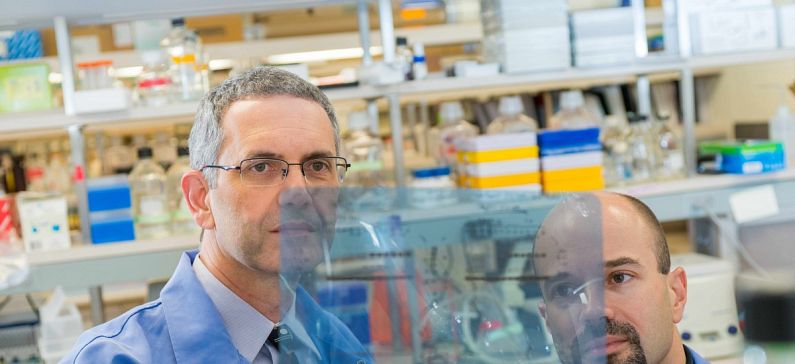
Found a way to reprogram tumour cells into benign cells
Antonis Kourtidis, is a Greek biologist and researcher, who -under the guidance of professor Panos Anastasiadis of the Department for Cancer Biology at Mayo Clinic- tries to find new and effective ways to beat cancer. In this effort, they have demonstrated a method to reprogram tumour cells into benign cells in what could be a dramatic breakthrough in the fight against the disease.
“Let’s make it clear! We have not found a way to cure cancer! We discovered a mechanism that in the future could lead to the treatment of cancer”, says professor Panos Anastasiadis, having Antonis Kourtidis at his side, at a past interview. Kourtidis is the first of the research team who signs their latest paper published on the 24th of August, 2015 (“How cell-cell junctions recruit the microprocessor to regulate cell behavior via miRNAs”) in “Nature Cell Biology”.
Scientists warn the method has only been trialled “in vitro”, and has not been tested on live human patients. But the hope is the technique may lead to a treatment for different cancers far less destructive than chemotherapy. Cancer cells are essentially the same as normal cells, but instead of stopping the process of division during replication, they continue to divide. The result is a tumour. The instruction to stop dividing is usually controlled by microRNAs, small but critical biological markers within the cells, but something happens inside cancerous cells which stops that process.
The team at the Mayo Clinic in Florida found that by injecting human breast and bladder cancer cells with PLEKHA7 — the protein thought to stop cells dividing when added in the right quantities — they could transform cancer cells into benign cells. The insight into the role of PLEKHA7 helped the team understand how the behaviour of proteins E-cadherin and p120 catenin, which are critical for holding normal tissue together while also powering cancer division, could be regulated.
Antonis Kourtidis was born in Greece, and got his Bachelor of Science in Biology (School of Biology, Aristotle University of Thessalonikiin 1998 with an excellent grade (8.54/10 – top 3%). He continued with post-graduate studies in Applied Genetics and Biotechnology in the same university from 1999 to 2001, while he obtained his PhD in 2004 in Molecular Biology and Evolution, again at the Aristotle University of Thessaloniki. From 2004 to 2009 he was a Post Doctoral Fellow at the GenNYSis Center for Excellence in Cancer Genomics at the State University of New York at Albany. It was in 2009 that he starter collaborating with the Mayo Clinic Cancer Center in Jacksonville Florida. From 2009 to 2011 he was a Senior Research Fellow. From 2011 until today he is a Research Associate and from 2014 until today he is an Instructor of Cancer Biology.
In 1998 he was awarded with the Tzivoglou Foundation Award for undergraduate studies and from 2000 to 2002 the Bodossaki Foundation Fellowship for PhD Studies.







